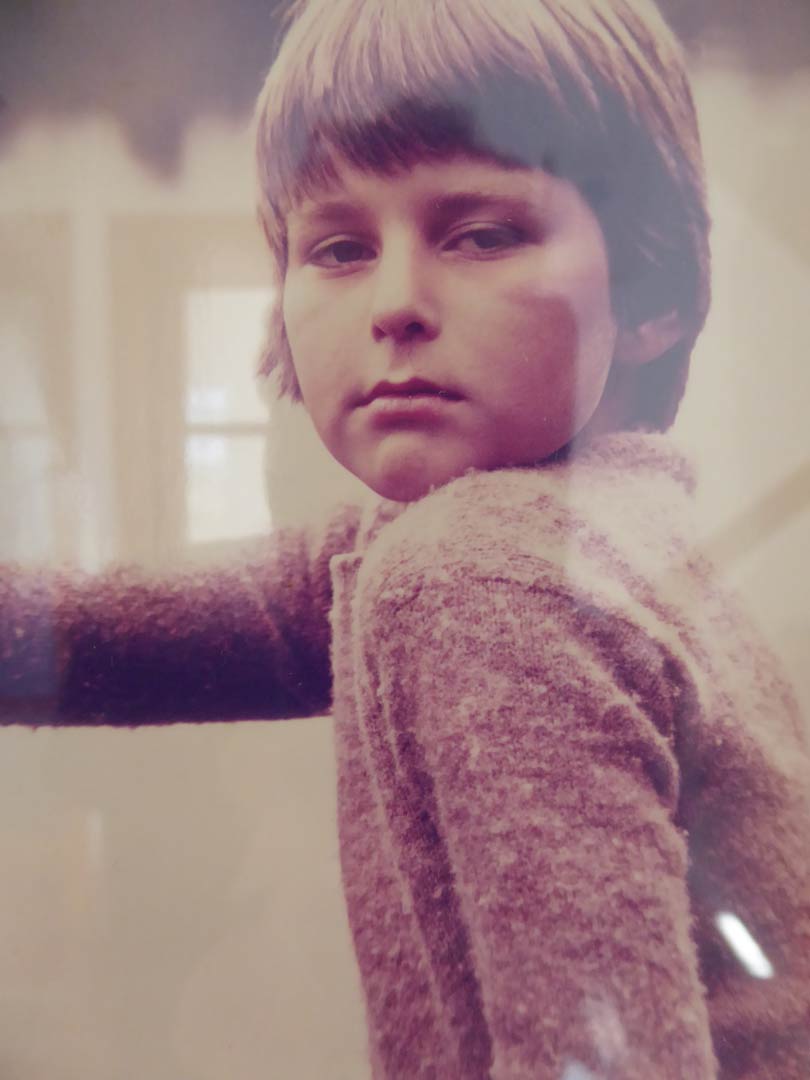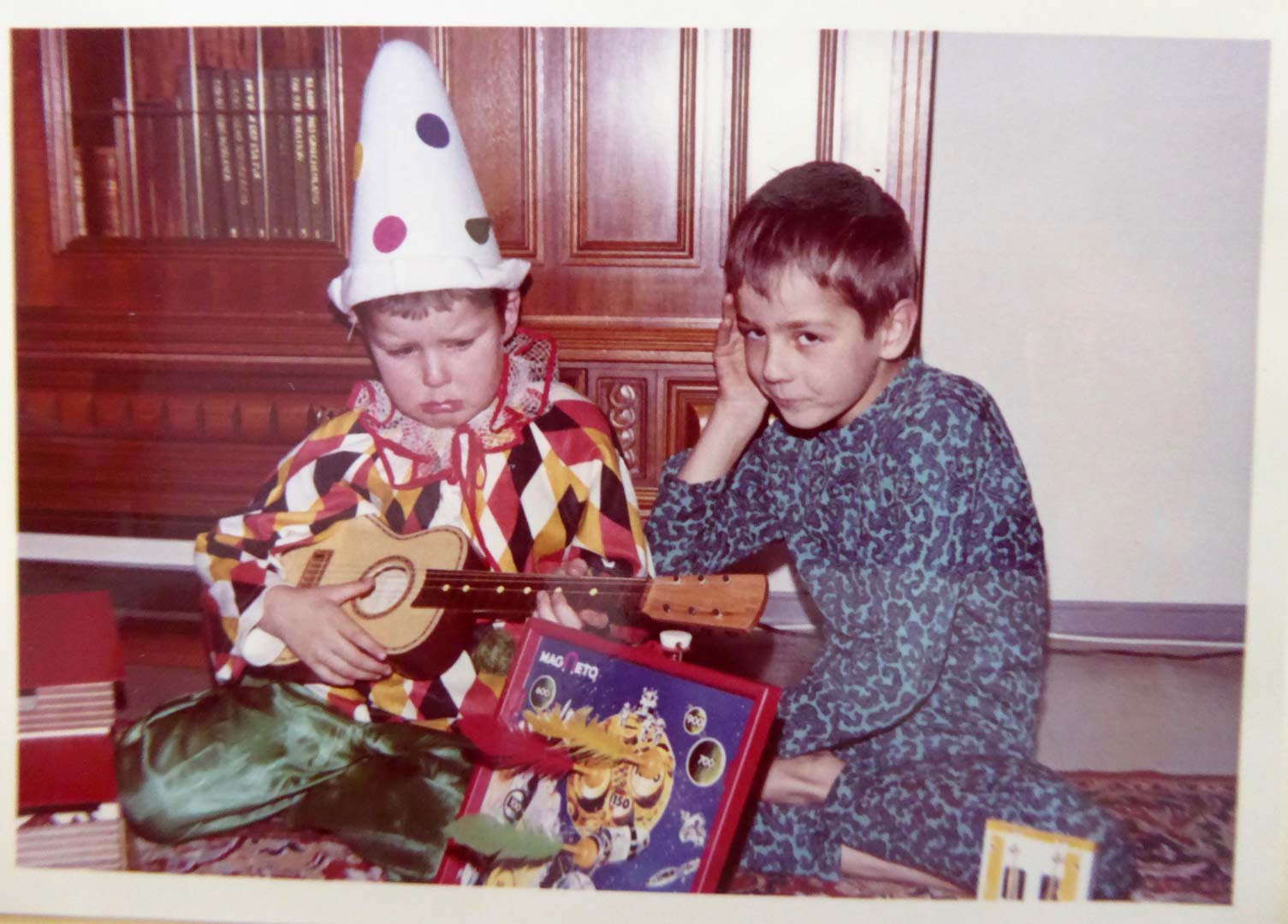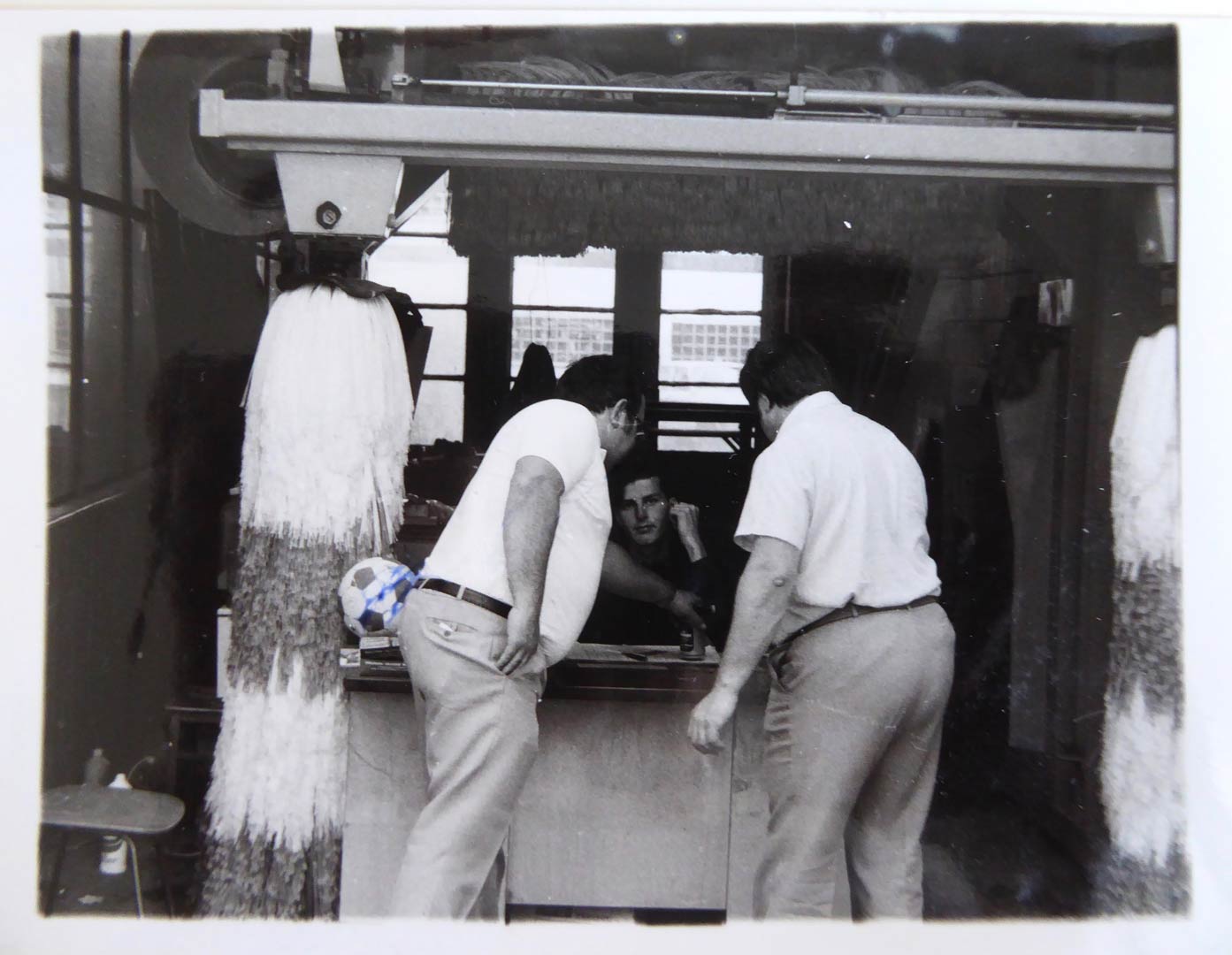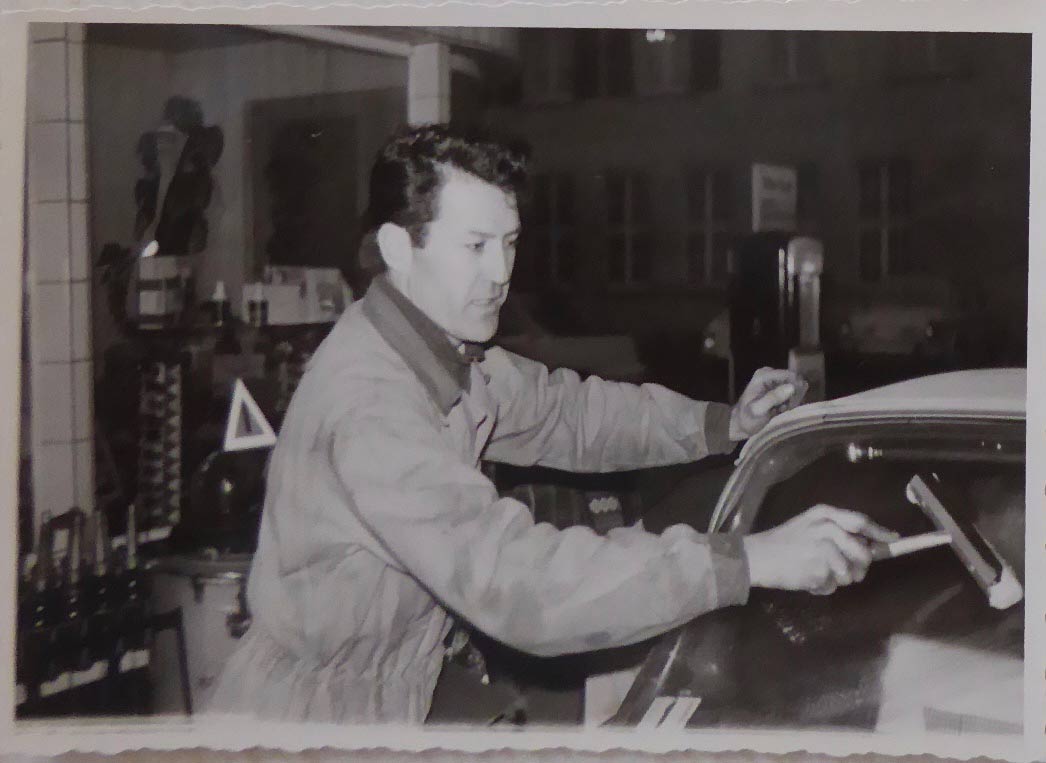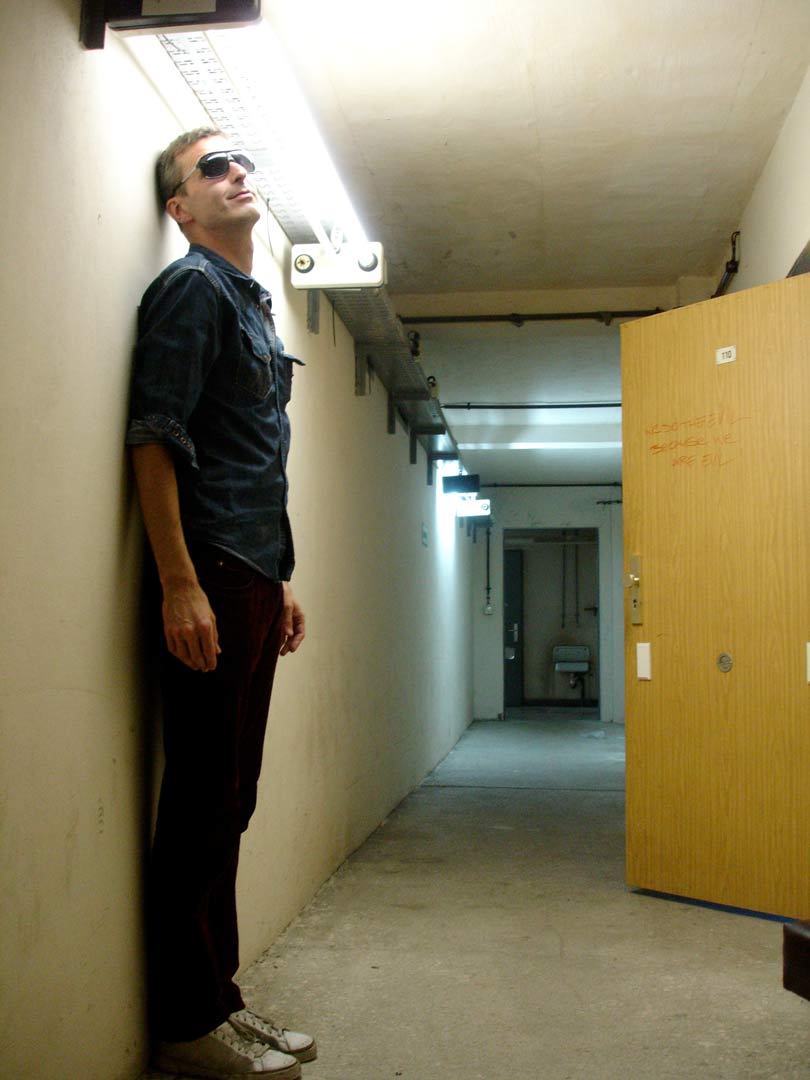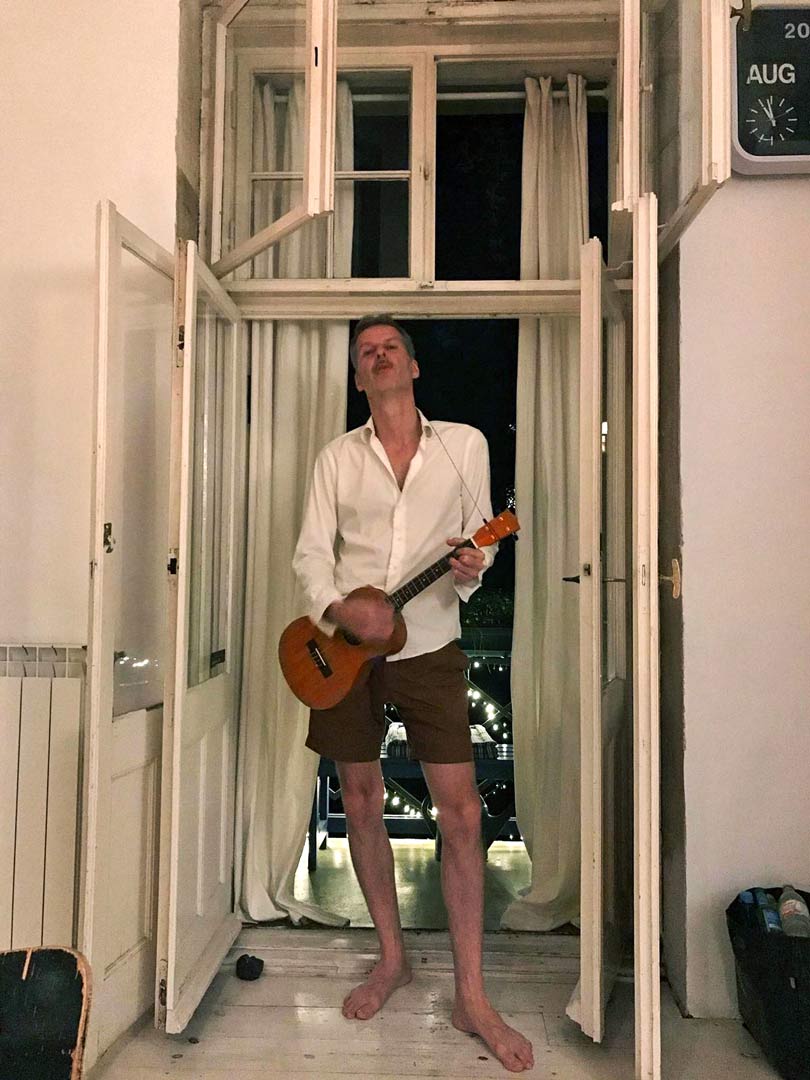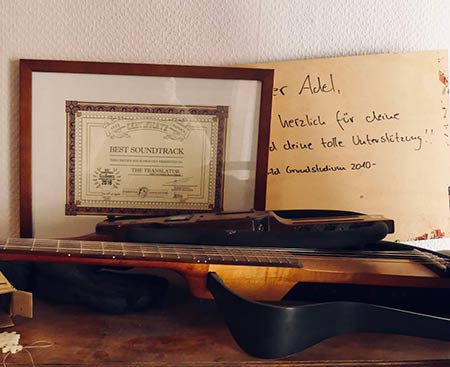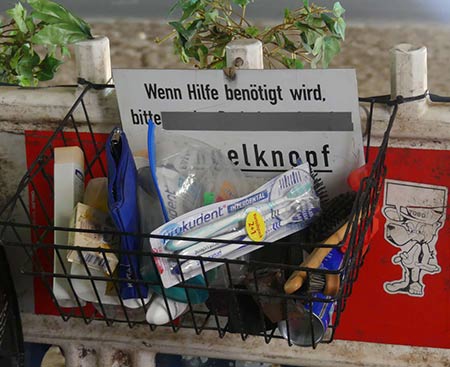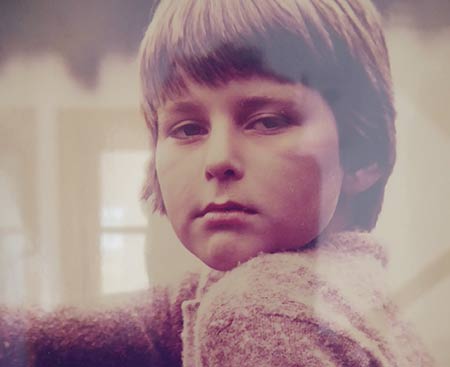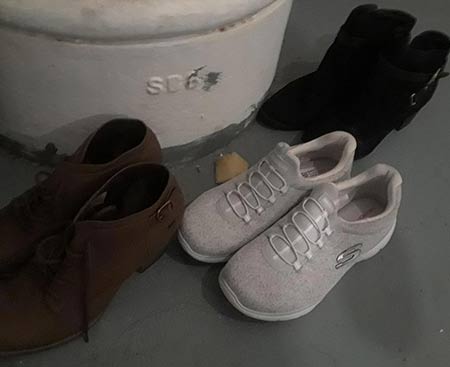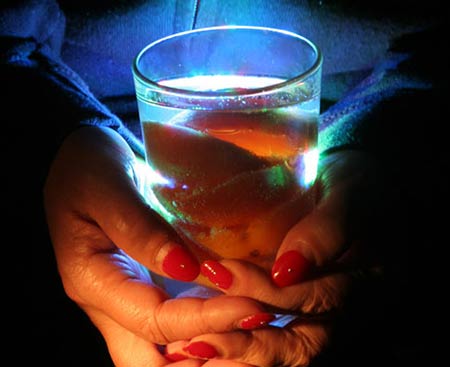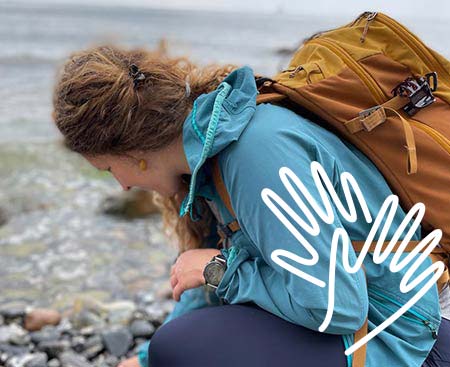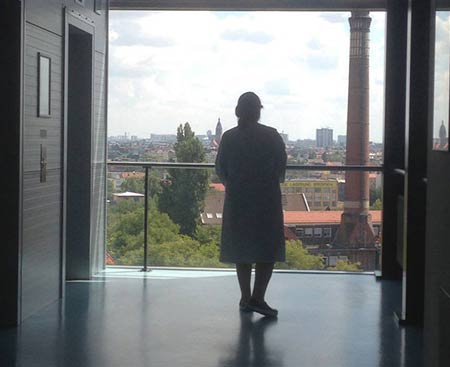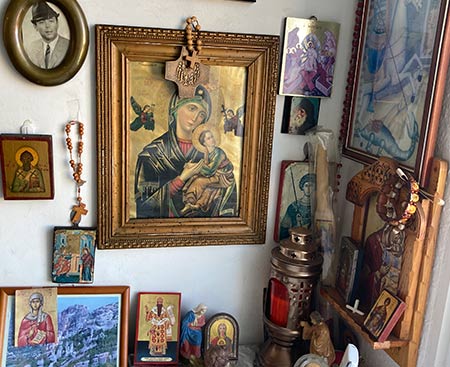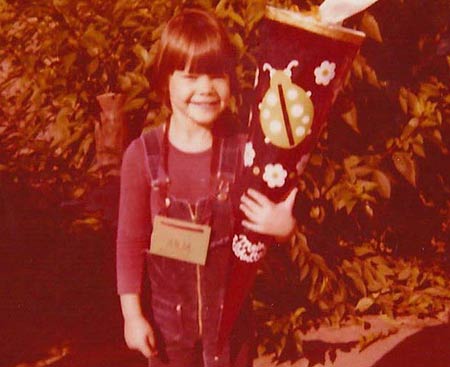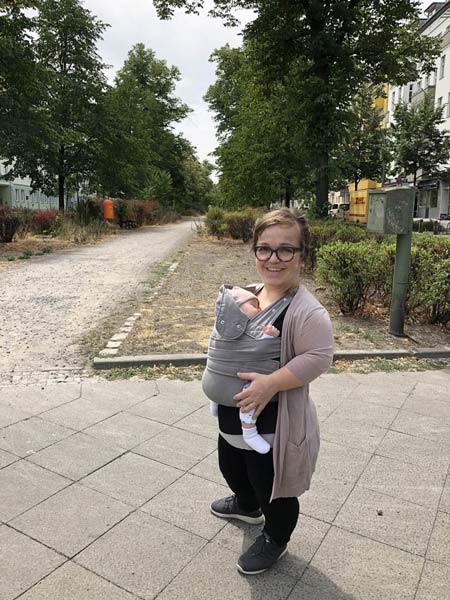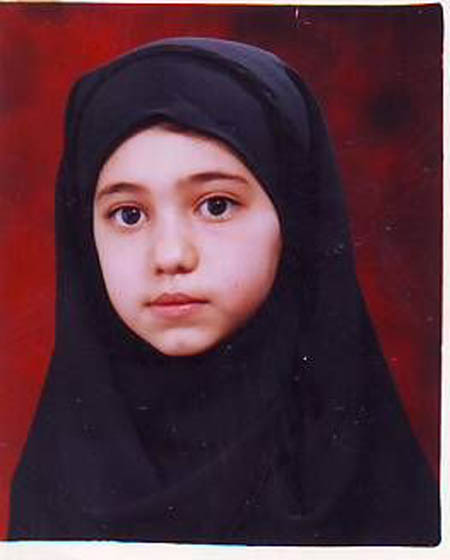My name is Can Oral. I was born in Germany and my father's turkish, and my mother is from Finland. They met in Germany. Growing up I was sort of living between Finland and Turkey and then when my older brother had to go to school, we lived in Germany because we, you know, we were in school and stuff , so hmmm.
Yeah, I lived the whole time through my school years in University in Germany, but short after I actually moved to United States and lived 11 years in New York, where I had my own business and doing stuff. And then I moved back to Germany after September 11th and applied for German citizenship because I was living on the Turkish passport in the United States or also in Germany before and since then I'm living here in Berlin. I'm in a relationship , in a long relationship here in berlin, also with a mixed background guy.
And I'm a musician, photographer. Although I don't really consider myself a photographer. I think maybe the best way to describe me is that maybe I'm a media artist , because I work with different media. I work with internet photography, music, sound, theater, performance. And I would say I just go between all these medias just to keep my own interest in what I do, to keep changing the angle of my interest. I can be quite talkative. I appreciate people with patience, with an open mind .
While I went to school in Germany and I started first grade and that kind of stuff. And I remember I went to school in the first day and they were talking a lot of stuff and, you know, they tried to be funny and everything. And I was really disappointed because I didn't think I was learning anything. So I left on the first day. I had to go back the next day. And then actually the school started and I was a pretty mediocre student. I would say .
Not having a German name, sort of I thought, you know, you get into a lot of uncomfortable situations in a way, about identity, about religion and that stuff because my national background, for example, my Turkish passport or something. And, you know, my passport said I was a muslim, so that didn't really apply to me, but it was in the passport. So I didn't know how to sort of deal with that kind of situations. And I found them always really uncomfortable. So that sort of added to the regular uncomfortableness of going to school regularly when you actually just want to go outside and play.
The first four years in regular German school I didn't like very much. I think they were very strict, still very narrow minded, very authoritarian. And that changed when I came into what is that called like fifth grade, fifth, 6-7-8-9, and 10, which is I don't know what you call it in German. It's called "Realschule". And I was in a school called "Gesamtschule", "integrierte Gesamtschule", secondary school. Okay , after the primary comes t he secondary school . So "Integrierte Gesamtschule", which is sort of in the German system , back then, when I went to school, it was like there was "Hauptschule", sort of , that's the shortest way before going to work. Realschule was nine years. And if you do 10 years, you could go on for another three years to do your Abitur, which is the high school diploma. And that's what I did.
So that was kind of interesting , because it would the system was that if you're good, for example, in physics or something, you could be in the highest grades. And if you're really bad in German or something or in history, you could be in the lowest grade. And then they would calculate if you get the entry to the Abi tur . So school itself, I don't know , I'm kind of very ambivalent about it.
It's like , to me, school is sort of , well, I guess it's preparing you for your life at work. So it's sort of it's a system that put little kids into boxes, so they will function later on in another box in the economic society, you know. I mean, it's like, yeah, you're getting your basics to be able to produce money , to produce , to be part of this society. Because maybe of my upbringing or my background, I never really felt part of a box or part of too many things. So I was not so interested in school.
Later on, after my abitur, I signed up for university, but I never really went. I just used the advantages of being a student, which is, you know, you can work tax free, you have health insurance. So even when I moved to New york, I was still a student. But, yeah, I never really went. And I never really finished anything at University. I think it would make sense to find a better alternative to school. Part of it's like a fabric, you know, it's a fabric of. Yeah. I mean, it comes out of industrial revolution or something. You know, a machine has to work, so the human has to work in the machine. And like all the animals, chicken in the chicken battery have to work and lay eggs and be slaughtered to end up on your plate. I don't see a big difference there , I don't find it very appealing. I don't know how it's like today, so I can't really tell, but I'm glad I'm out of school.
I like learning a lot, and I like to learn things that you can apply. So obviously it's interesting to learn languages, that stuff. But at least these days you don't really need to count too much or, you know, you don't need to write anymore. Your cell phone does it for you. Your computer does it for you. It even translates for you. So maybe soon we don't have to learn languages because some gadget will simultaneously translate it for you. We'll see. We'll see. But I like learning. And I mean that's why I like to use different media, because each time you switch a media, let's say you switch from music to photography . Music you're working and you're learning through your ears. So when you switch to photography, you're looking and you're learning through your eyes. And then you know I think by moving and switching and changing medias, you open different gateways into your learning system, into your genetics or however you want to call this. I mean, I remember I was really, really interested in music and mainly pop music as a young kid, and I could sing all the songs, although I didn't even know how to speak english, so I would just sing along in some madeup language.
Music is very immersive. You can dive into it or it just surrounds you. And I like that feeling when you lose yourself into art or into music or into feelings and it's a meditative state in a way. I was interested in it. And where I grew up, there was sort of a youth center kind of close to my house. And it was very intriguing because the cool, cool kids would hang out there. So I just sort of started going there. And in the basement, they had these rehearsal spaces for different rock bands. And if I had a chance, I would peek inside and I asked if I could watch them rehearse or watch them play. And I think at one point somebody just asked me if I wanted to join, and they were all twice as old as me. But I just sort of started using a microphone and using some drums and stuff like that and got more and more into it, you know. Yeah.
My father had a gas station. You know, it's kind of a wild place in a way, because there's, like, public traffic, even like some shady people show up. And I don't exactly know what my father was doing there. But it was a pretty rich environment because I learned through that very young how to be very self sufficient I think. My dad told me once, like, if you need any money, just clean somebody's windows, window screen, and hold out your hand. And you know they will give you some money , because you're cute and young. And so I did. And you do it a few times. All of a sudden, you have five euros or 10 euros when you're six years old. That's enough money to go to the movies or buy ice cream or stuff like this.
It was a quite simple lesson of just to be smart about how to get to money. And that money is not that important, really. It's not like, okay, I spent all day and then have lots of money. It was just like, okay, if I want to do this, then it takes 20 minutes. I'll do it, and then I'm off, and I have what I want.
Growing up on a gas station also introduced me to pornography. First time, I think, because employees of my father, they had dirty magazines there. And that was quite interesting, quite exciting. It was just a place where you can discover a lot of things. And then one day, somebody blew up my father's gas station because of my father's Turkish background.
I don't think it was one of the first sort of right wing attacks to immigrants in Germany, but it was quite a big thing because it didn't really happened in that magnitude in a while. I mean, blowing up a gas station, it's quite a thing. I think in that moment, I also sort of realize how violent this can be or how fragile life is. And, you know, your situation, or you think everything is safe because you're in a family and you're a kid. You trust in the safety. And then you learn in one second that it's not fake, but you need to trust. You need to trust either, or you need to trust in yourself, not necessarily in this system around you, because that system always has sort of this Ying and Yang has this, like, left and right, black and white, whatever, you know. So I learned quite fast, quite early, how to rely on myself and how to trust in where I'm going and that I'm gonna be fine with it. Besides, gas stations have lots of chocolates, alcohol, pornography, gas.
I told my dad once, I will never drive. I never made a driver's license until today. I never drive. And my dad was really proud of me for actually doing that. Well, I mean, he just remembered. So for him, it's like telling my dad, as a mechanic, as somebody who's running a gas station, who's really into cars, who also comes from this automobile generation, you know, family car. And I always hated cars. I never liked them really. I just stuck to it. I stayed true to my word, and he really appreciated that.
He told me that years, years and years, and years later, he was like, by the way, you never made your drivers and you never drove really proud of you. I thought that was really cute.
Well, life is not a job. It's not like, oh, I want to be a truck driver. I want to be a Butcher or I want to be an artist. You know, I think for me, life is definitely a changing process. And once you probably have a job, once you could consider yourself something, I think then it's already time to change. I get bored really easily. And for me, the most important thing is the experience itself. And if you get too comfortable in your situation, you lose the touch to the experience, because the experience sort of gets blurred by habits, by self assurance. Oh, I'm an artist, you know, great. I make money. Great. It doesn't challenge you anymore. So I think that's the most important part to learn, to really dig deep and feel, try to understand the experiences you have.
When I was a kid, I think the first thing that I wanted to be was Cleopatra. So that was my first big job fantasy or whatever. I mean, you know, some people want to be a truckdriver , I wanted to be Cleopatra. You know, it changed, obviously. But I also like to go with the flow , I think. I think you can imagine, you know, you look at your interest. I like to make music. I like to make photography, so I should be an artist.
But again, that's sort of the term artist. And the picture of an artist is too close for what you maybe become in the end, which might be a much bigger picture. Let's say, as a kid, you have the imagination, or you have the idea of becoming a pilot . Once you're a pilot. I think that has not so much to do with the fantasy you used to have as a kid. That's much grander. It's much bigger. The Sky is much bigger when you're a kid. And when you're actually sitting there eating bad airline food on the airplane and flying for 15 hours in the cockpit and not moving, the fantasy becomes quite small and not so interesting. A lot of people stick to their fantasy and maybe become very unhappy. Very , I mean, I can't imagine myself, at least in one profession or doing one thing for too long. As much as I can't imagine staying in one place forever or for too long, you know, I need changes. I need a development.
I've been thinking already. I'm in Berlin for, I think, almost 20 years now, and I've been thinking already for a couple of years to move. I haven't really decided on where to go. For me, that was at least for a long time, quite clear. I always wanted to move to Mexico because I feel very much at home there. I don't know. Right now, I don't have that place. And I like that I don't have a clear idea about where I want to go. I think the best decisions are made by accident, are made by nature, are made by destiny or whatever, you know, deciding yourself where you're gonna go, what you're gonna do always has the 50% possibility of doing the wrong decision. So if things just happen, it's always the right decision.
One of the biggest cuts in my life was actually when my mom died, you know . She died when I was 11 and th at was quite traumatic and horrible and that whole thing, thinking about it afterwards, it's very kind of difficult to explain . But when that happened, I think I felt for the first time in my life, I could feel the universe. It was like I felt so alone, that I could feel the endless space around me. I don't know if you can understand what I'm talking about . And that feeling in retrospect, I mean, it's almost like an epiphany to know this space. I mean, I feel like I know the universe. I can't describe it, but I can feel it.
I can feel the endless vast of nothing. I don't see that in a negative or in a positive way. What I see in a positive way that I tapped into this or something. But I think that was definitely a very life changing experience. And I came across that experience not so much in this sad sense, but I came across that experience a few more times.
It's reassuring that you are safe in this big nothing because there's nothing to be safe off, you know what I mean? So it's like I'm good, you know? I feel like I'm good. I'm fine. I can relay on myself.
I'm fine in this position, because how do I describe if you have that experience of this endlessness? You're like an atom in this universe, but everything is safe because you have your position. Yeah, I can't really. I mean, it's not that I talk about this so much, but this is maybe the closest ho w I can describe it or something. I can trust. I would say that's maybe the best description. You don't have to say what you trust in, you know, I can trust.
I love putting myself into a situation where you're not safe in a way. It's like if you go into a new country, you have to meet new people. You have to find your way around. You have to communicate. So all of that is really exciting I think . It really energizes me. It makes me going. It really makes me come out, you know . Maybe being in one place for too long, you start to, like, slow down and you have your friends and you know where to find everything. This break or this change is for me, very healthy, you know, and I can only recommend it to everyone that moving shows you the world you know . It doesn't matter where you move or how you move.
New York is a pretty good place to move to, first of all, because of the architecture of the city. I mean, it's divided in numbers. The streets are counted from zero to 105 th Street or 157 th Street. And it goes east and west, so everybody you can get around immediately. It's a very foreign, very visitor friendly city.
The U S American attitude is actually very open. Well, it's very talkative and very open to anybody who shows up. It's not that you are left out. It might be a bit probably doesn't go too deep or, you know, probably some of the promises won't happen in the end. It's a feel good, feel good place in a way, you know . The US American way of life is the feel good way of life , you know. It's a bit shallow, but it's definitely fun, you know .
It was a good place to make music. I started my first business when I lived in New York. I opened a record shop. I opened a record shop without any money. I didn't have anything, really, and I just talked people into doing it and giving me money and a space and everything. And then I think six months later, I had a record shop going only in the US, you know, everything is influential, and I don't see that very judgmental. There's good influence. There's bad influence. For example, here in Berlin, if I deal a lot with the music scene, I don't feel like I'm really learning anything because it's like everybody knows the same thing. Everybody talks about the same thing. Everybody shows the same thing. So I think I'm more influenced by somebody who's quite different to me. And I'm always also very attracted by people and things that are different to what I know to who I am myself . Influence is something you only have when you can go deeper, when you can dig into something, or if you really get to know somebody that can influence you because you learn something that is not you, it's a Mirror. So I think, obviously my relationship is influential because it showed me many times, you know, that you can be a real asshole about something or that you have positive sides.
But it's not like this music journalist questions, who are your influences? And I would list a couple of musicians that I like, I think, in a way, influenced by technology, because technology is also something, as I mentioned before, if you make music and I do electronic music, so you have a piece of gear or you have a gadget , a drum machine or something, and the machine itself filters and puts you into a direction that you can not. It's an extension of your body and mind and soul in a way.
I think technology is very influential to me because then when I sort of discovered photography for myself, the camera itself, this whole idea that my eyes are being focused in a different way on something. I'm not just looking at the world. I'm sort of focusing on the world, and I'm looking at details, color and structures and whatever . That is way more influential than, I would say Nietzsche. I think all this input we have coming from school, coming from stuff you read, stuff you watch, in my case, becomes influential sometimes afterwards, like years after . For example, I was never really interested in figurative art. In figurative painting or something. I always liked abstract painting when I was young, until to a certain point where I saw El Greco.
He's quite figurative, but at the same time, very psychedelic. So at that time, all of a sudden, I understood figurative painting, for example. And I knew about these painters before, but they never really touched me. So I needed this one little key, which was El Greco, to open a whole new world for me and I understood that figurative painting in a way is abstract, too, because it's an abstraction, of course, of a model , of a person or of an idea put on canvas. So maybe El Greco was influential to me , yes. The one and only , he's amazing yeah.
Reflection is just very important - to always reflect on your situation. And with reflection, I don't mean necessarily only the sort of analytic reflection of, like, okay, what have I done? And what is it going to affect? And who is it going to affect? And how is it going to affect my future? More like it has to be a mixture of analytic thinking, but also a feeling. You have to sort of feedback, or I'm not good in telling people what to do, but at least for myself, I have to feel things as well. So I try to understand things and feel them at the same time. And then I know I'm more or less on the right path. Or I'm correct. I'm correct in my thinking and my feeling. Or I'm correct in my feeling and my thinking. To be or to actually let yourself be in that kind of state. It's sort of important not to be bombarded by information, you know . Or be bombarded by information, but then step back and take your time and just sort of hear it reverbing in yourself or feel it reverbing in yourself and see what kind of ideas or what kind of understanding comes out of that moment.
We're thinking beings, but we're also feeling beings, so we need to keep that in a balance. I think Andy Warhol said that too much information kills creativity. Creativity is sort of the product of emotional, intellectual reflection. Always remember that you are yourself the most important thing because you are the interface between life and everything. You know, it's your eyes, it's your ears, and you have to, you know, thinking and feeling is the translation of life.
If you don't feel it, you haven't really learned it. You know, you haven't really. It's just information. It's just buying books or something. If you read a book, you feel it. You're internalizing information with life. And, I mean, we're living beings. We're here for life. What else is important?
It's all about the experience. It's all about the fun, even, like, all the bad experiences, all the sad stuff. It's all important. If I have a broken heart or something, I'm like, I know I'm gonna come out and be much smarter, emotionally and intellectually. Same when you get sick or something, you know, after three days of fever and sneezing, when you're well, you feel really clean and fresh and new, you know, that's life. You know, I think, you know. Yeah, it's nothing new, but I can tell it firsthand.
